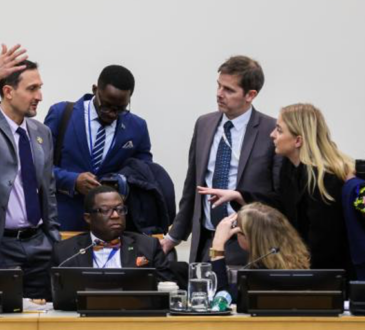
By Eugene Davis
Finance Minister Ken Ofori-Atta says a key challenge with Credit Rating Agencies (CRAs) is the “systemic bias” in their rating methodologies, procedures, practices, and processes towards Africa.
Speaking as a panelist on ‘The impact of credit ratings on the costs of development finance in Africa’, Ghana’s finance minister said “There is a consistently unfavourable credit ratings, negative outlook potentially to impede growth and it negatively undermines the ability that we have.
So today with this poorly crisis the pertinent question remains is how will Africa mobilise our resources required when we are essentially written off as markets that are riskier,” he said this on the margins of the 2023 World Bank/IMF Annual Spring Meetings in Washington DC.
Mr. Ofori-Atta said the unfair ratings affected developing countries’ access to credit. He also adds that the “whole system is geared towards making the use of our resources difficult to justify.”
Mr. Ofori-Atta had said since 2003 to date, Ghana had three upgrades and nine downgrades and though between 2017 and 2019, the country had successive rating upgrades, with a “track-record” of safeguarding macroeconomic stability, it was questionable that the country was downgraded during a pandemic
“Unless we prioritise reform now, the divergence between developed and developing nations will become a toxic recipe for instability, crisis, and forced migration,”
For him, the continent remains poor due to factors such as illicit financial flows, surcharges being paid to multilaterals and reckons the African Union can do more to support African economies to stand on its feet with policies.
UNDP report notes that the combined cost of credit ratings issues cost Africa around $75b, money that could have been used for 80% of Africa’s annual infrastructure investment needs.
The event, which took place on the margins of the 2023 World Bank/IMF Annual Spring Meetings in Washington DC, featured findings from a new UNDP report that analyzes credit ratings methodologies in Africa, discusses financial and development ramifications, and proposes alternative approaches for countries where relevant data is scarce.
The role of credit rating agencies is critical in determining sovereign creditworthiness and, consequently, the cost of debt for both sovereign and corporate borrowers.







